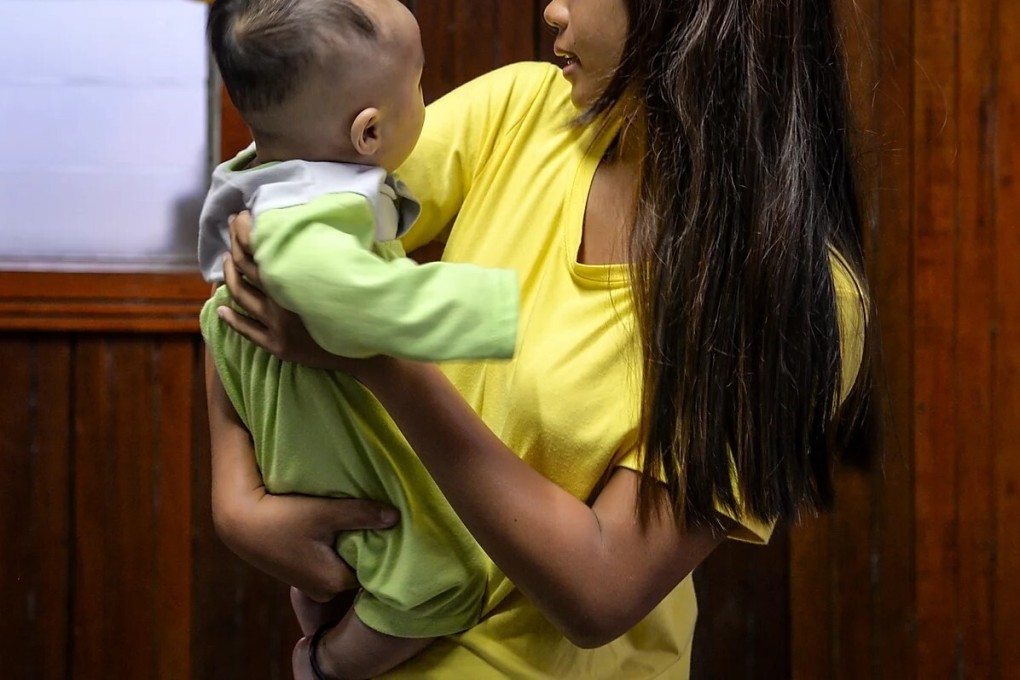Married at 12, a mother at 13: a Malaysian child bride’s story
- Mary is one of hundreds of children from Sarawak’s indigenous communities to have married before reaching adulthood
- ‘I was surprised. I felt like I was going for a number two, but when I went to the toilet I realised I was ready to give birth,’ she recalls of her time in labour

Her favourite subjects in school were Mathematics, Science and English, and she aspired to be a teacher, but Mary had to cast those dreams aside when she married and became pregnant at 12 years old.
From 2011 to 2016, the Sarawak Council for Customs and Traditions recorded 1,472 child marriages among non-Muslim bumiputra, a Malay word for “natives”.
Mary frequently uses the Malay word bahagia, meaning “happy”, as she talks about her marriage while seated on the corridor floor of her family’s longhouse in the village of Long Menapa.
The tribe she belongs to, the Penan, were traditionally nomadic but have settled in the village in the longhouses, a traditional form of elongated and narrow housing raised on stilts, where families live side by side. About seven years ago, the tribe converted to Christianity.
A normal day for Mary involves hanging around with her neighbours and relatives, while looking forward to the weekends when her husband returns home from work at an oil palm plantation.